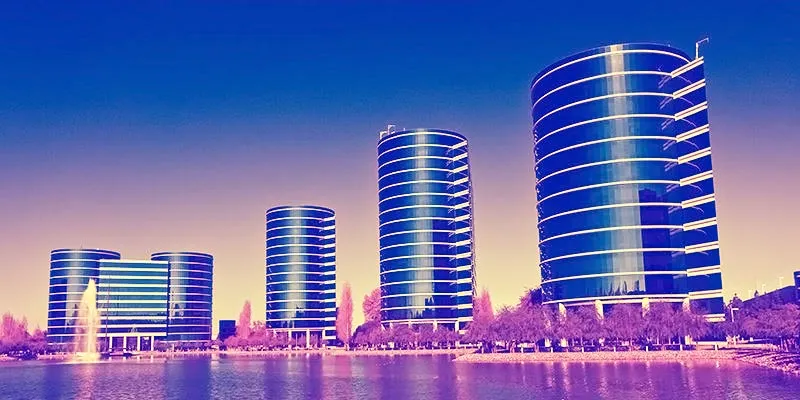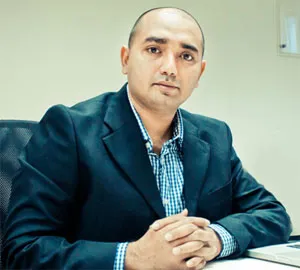Things you must know before you set up in Silicon Valley - with Reduce Data's Asif Ali
Reduce Data is a programmatic display advertising platform that delivers tools that are necessary to run successful display advertising campaigns. Asif Ali, a technologist and an entrepreneur based in Sunnyvale, CA started this company in October 2012. He previously ran Zestadz for over three-and-a-half years before selling it to Komli Media. Post the success of this venture, Asif wanted to build a global company. Locating to the Valley was crucial in making Reduce Data successful. We spoke with him to find out more about his journey and about things to know before setting up an office in Silicon Valley.

YS: What is the first advice you have for entrepreneurs looking to set up office in the Valley?
AA: Advice and guidance from someone based in the Valley is tremendously useful to avoid common mistakes. To incorporate, hiring a startup friendly lawyer (these lawyers sometimes defer payments for startups) is useful. They can then setup the Delaware + California Incorporation and also structure other paperwork. I would also recommend hiring a CPA who can take care of your annual taxes, filings with the IRS and so forth.
The US is highly regulated (much like India) and if you miss filings, it can cost a lot and that has been something about which we have been told to watch out for.
YS: Who are your go-to service providers for legal and office space?
AA: We have different attorneys for Immigration (Gotcher Law) and Company incorporation (DLA Piper). Office space was easy. I started to work from home and Hackerdojo and eventually took the help of a real estate agent. For startups they can also quickly set up shop at Hackerdojo ($100 a month membership, otherwise free) or at Plug and Play (about $600 a seat).

AA: I would say it is a bit of a challenge but not entirely difficult. The Bay Area is a culturally mixed place and in general everyone fits in reasonably well. It becomes difficult when you go to places such as the Midwest, Texas etc where if you don't have a clue on the local sport or can't participate in their conversations (either weather, sports and local hobbies), it becomes quite a challenge until you catch up.
YS: What are the challenges you face while going about this? Perception challenges, hiring challenges, and fundraising challenges etc?
AA: Indian startups do face many challenges starting with hiring. Fund raising is difficult because for the US VCs, a company with a large part of the team in India is generally off limits until you hit scale and demonstrate operating leverage. For Indian VCs, these startups happen to be global play that they can't deal with because they have US counterparts.
It is culturally hard as well until you blend in and this creates various challenges especially in hiring. Perception challenges also exist because in certain industries (such as advertising), it is extremely uncommon to have an offshore team.
YS: What is India/US breakup of your team?
AA: I and my co-founder are based in the US together with 5 full time employees split between engineering, marketing & sales. In addition, we have a part time VP of Finance who ensures that the books are in order. In India, we have a 13 member team split between engineering and sales bringing the total headcount to 20.
A successful entrepreneur recently told me that I am insane for trying to build an ad tech company and still being bootstrapped. We have been continuing to prove him both right (insane for trying) and wrong. We are not averse to raising capital but simply have been focussed at building the product and gaining traction. we will raise capital from a
YS: How are these two markets different? What can we learn from each market?
AA: The US market values adoption of new technology and because of that, new innovations continue to find space in the marketplace and this is a big advantage for technology entrepreneurs. This allows us to experiment with new ideas, find our space and gain against similar incumbents. A good example of such a company would be GoPro which just IPO'ed.
The Indian market is about perseverance. It takes a while to get started, to build tech, to convince customers but eventually you get there.
I was also sure that we could pull this off from any other geography in the US, but the Bay Area is the place to be and I am very happy that I have made the decision to be here.
YS: Last word to YourStory readers.
AA: If any of you are looking to shift your business base, do feel free to connect with me. I am happy to help. And if you are around Bay Area and need to work out of office space, feel free to reach out to me to use our modest office in Sunnyvale.
This is an ongoing series, we will bring you many more conversations with entrepreneurs who have expanded their operations to Silicon Valley






